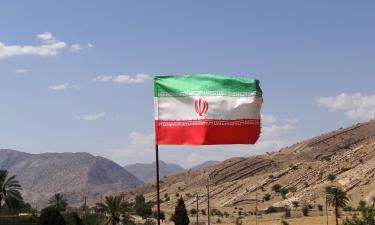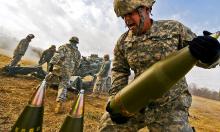The Price of the Problem
Russian businessmen are ready to pay pretty sums of money to get seats in the State Duma. They say the objective is worth large-scale spending as everything will be compensated
This year it will be more difficult for Russian businessmen to enter the Duma than at the previous elections as spending on pre-election campaign has considerably increased. The Central Election Commission has raised the limit of the election fund in the majority districts 3.5 times. According to the new election regulations candidates can spend just about $200,000 on their pre-election campaigns. Politics experts say that the sum may help only those candidates enter the Duma who have TV channels, newspapers and enterprises of their own in that particular district which they are going to represent in the Duma. Otherwise, this sum is not enough to enter the Duma this year. It is said that the initial price of a pre-election campaign's organization makes up $500,000. At that, a seat in the Duma on a party list is valued at $1.5 million.
The high price for the mandate is not a problem at all for those businessmen who seek power. They are rather anxious about the problem whether it makes sense to go to the Duma at all. They worry if this large-scale investment will be repaid.
It is believed that businessmen in the State Duma of the previous convocation went there to attain a mandate to pursue their own interests and the interests of their enterprises. Leaders of small- and medium-sized companies wanted to acquire a deputy status and deputy authorities with a view to protect the business from attacks of the regional administrations and their rivals.
Businessmen were particularly interested in obtaining personal immunity. It is an open secret that dozens of entrepreneurs who were sued participated in the 1999 parliamentary elections. Expert with the INDEM Foundation Konstantin Golovshinsky says: "Under conditions of semi-criminal economy the deputy immunity is a valuable resource for running the business; it makes sense to invest this source."
What is more, among Duma deputies there were businessmen who understood that their enterprises had achieved everything they could on the regional level and couldn't develop further because of their weak relations with the federal authorities. Vice-president of the OPORA Rossii (Russia's Support), the public organization of small and medium-sized entrepreneurship Irina Nikishkina says: "When businessmen managed to win seats in the Duma, their spending for the pre-election campaigns were quickly compensated at the expense of better progress at their enterprises. Such businessmen handle administrative barriers better than their rivals; they establish more new business contacts". Businessmen in the Duma save much money as they don't have to bribe officials; they instead resort to new business and administrative contacts.
According to researches conducted by the INDEM Foundation, Russian entrepreneurs spend about $33.5 billion on bribes to officials per year; the sum makes up the amount of Russia's budgetary revenues.
When businessmen in the Duma are asked the question why they decided to put forward their candidatures to parliamentary elections, they don't like to speak about money. They rather mention non-economic reasons or speak about the interests of the whole of the business community. SPS member Nikolay Brusnikin, who used to be the director of Tolyatti's Transformator enterprise before the 1999 elections to the Duma, says that businessmen of that period felt the time was changing. At that they believed they would be able to considerably contribute to Russia's law-making. Nikolay Brusnikin and other regional entrepreneurs were dissatisfied with the final version of the laws "On joint-stock companies", "On the securities market" and other economic documents passed by the left-wing Duma. Those businessmen responded to the initiative of Sergey Kirienko to go and participate in the parliamentary elections with a view "to liquidate the habitual prevalence of social and political tendencies for the sake of economic ones."
Deputy from the faction Fatherland - All Russia Sergey Shirokov says: "Business remains mere business only until some definite period of its development; then it gets connected with politics sooner or later." The deputy used to be the leader of a group of construction companies.
A well-known political consultant in Moscow who requested anonymity was an active participant of thedevelopment of election strategies for businessmen running for the Duma in 1999. He insists that in majority of instances his clients were motivated by non-economic reasons.
If we speak about the motives that urge businessmen to participate in parliamentary elections we should mention the problem of parliamentary lobbyism. As the mass media is too focused on the problem, average Russians may think that price lists are pinned almost to every door of the RF State Duma to inform people about the cost of deputies' services. However, many political experts and deputies say that it is rather difficult to make this or that decision to be taken on the federal law level in the interests of some particular enterprise or even some industry.
A businessman who manages to become a deputy faces steep demands of the shareholders who expect that his company will be immediately given more finance. At that same time, this candidate becomes really very vulnerable to criticism going from his rivals, opponents and authorities. Under such conditions the task of a professional lobbyists to reach a compromise between the interests of the client and a rather big and influential group of deputies.
It is important that the fact that elections to the Duma have become really rather commercial and there are many businessmen among the deputies now has put an end to the primitive lobbyist schemes.
The 1999 Duma elections were marked with a great number of business candidates. Different sources report that 70-90 candidates at the 1999 parliamentary elections were private entrepreneurs: they owned or managed the assets of commercial enterprises. Before the elections many of the candidates withdrew from business before the elections and were in public service as the legislation requires.
Deputies are forbidden (in a rather vague form by the way) "to do any kind of business or any other kind of paid activity except for tutoring, scientific and other artistic activity", they are not allowed "to be members of board of any commercial society or organization."
Sergey Shirokov says: "The period of deputy authorities is four years. On the one hand businessmen in the Duma have to withdraw from business as they must deal with quite different problems. At the same time, this is absolutely wrong to break with the business at all. Every deputy must have an opportunity to resume working at his enterprise as soon as his deputy authorities are over."
This is strange but the vague formulating of the legislation give a wide range of opportunities to those deputies who don't plan to withdraw from business. In fact, holding of shares of some enterprise doesn't mean entrepreneurship or some other kind of paid activity; the position of the president of some company is not the board (as it is said in the legislation). That is why leaders of companies that they personally run merely strike their names out of the pay-roll when they become Duma deputies and make no other changes at all.
The situation is more complicated for enterprises run by a collective board. In this case serious juridical work is done to transfer a former member of the board (now a deputy) to the position of an unpaid consultant (or member of the supervisory board) while his authorities are still preserved. In some cases (when business activity of a Duma deputy is in focus), the deputy voluntarily hands his assets to the trust management.
In other words, this is a rather risky and psychological process for businessmen to hand their assets over to somebody or to re-build the administrative structure of enterprises. And many deputies doubt whether it makes sense at all to take such measures. In May 2002, SPS deputy Vladimir Semenov suggested that the Duma can make an amendment to the legislation to allow deputies be involved in business. The idea frustrated, it even failed to win support of many of Semenov's colleagues. The deputy comments upon the situation this way: "I know that over half of the Duma deputies are involved in business activity. Some of them managed to retain control over the companies they run before the elections; others set up their business being already Duma deputies - at that their relatives are declared to be the owners of the business." The system the deputy suggested was meant to make the process more transparent, but as it turned out deputies preferred to play the hypocrite.
Pavel Zhavoronkov
Subscribe to Pravda.Ru Telegram channel, Facebook, RSS!





